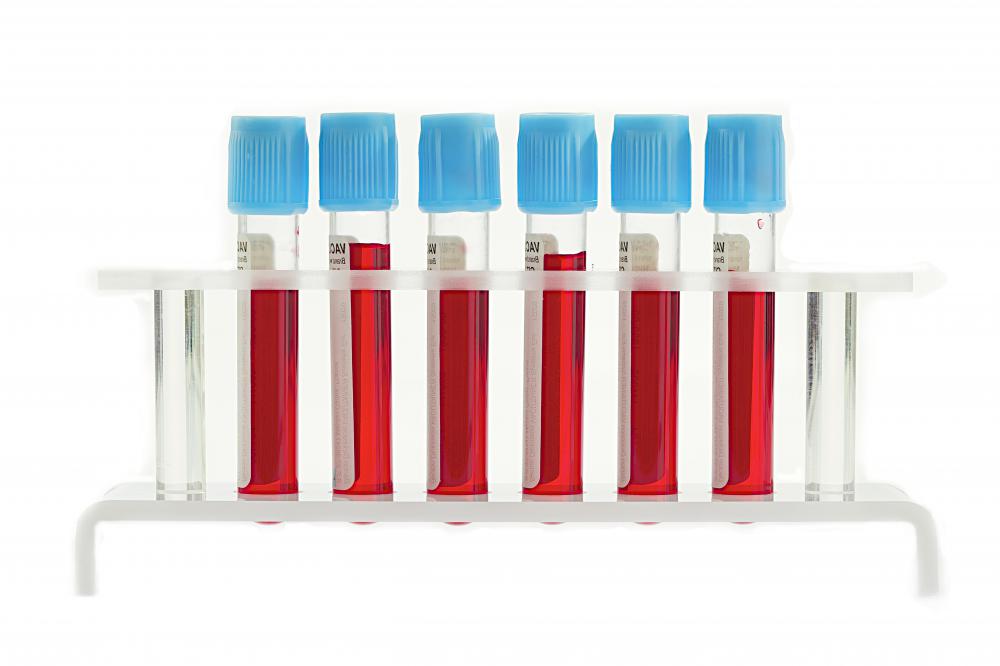At WiseGEEK, we're committed to delivering accurate, trustworthy information. Our expert-authored content is rigorously fact-checked and sourced from credible authorities. Discover how we uphold the highest standards in providing you with reliable knowledge.
What is the Sister Study?
The Sister Study is a lengthy analysis of 50,000 women who have sisters that were diagnosed with breast cancer. The National Institute of Environmental Health Sciences commissioned the study and began enrolling participants in 2004. Each woman who voluntarily participates in the study does so for a total of ten years. During that time various measurements of health, genetics, behavior and et cetera are provided occasionally so that the National Institute of Environmental Health Sciences can evaluate the common factors or differences that may have a role in predicting breast cancer likelihood, and especially in finding out how environment and/or genetics may be predictors for the disease.
Women who participate in the Sister Study do so after applying and being accepted. They usually have to provide things like urine samples, toenail clippings and samplings of dust collected in the home in which they live. They also complete several phone interviews and give a blood sample. Once they’re been fully enrolled and provided preliminary data, they periodically have updates with researches.

Age range of participants in the Sister Study ranges from 35 to 74, and since 2008, there have plans to create a Two Sister Study, which would particularly look at women who have had breast cancer early in life. This study is likely to be smaller in scope, and will only enroll about 2000 women. Similar information will be gathered to evaluate what influence genetic background and environment might have in causing breast cancer.

The amount of information that can be gathered from willing participants is looked upon with great hope. All the numbers or values that the tests of one woman provide, when combined with the data of other women’s tests, may begin to show patterns, and these can reveal information regarding a life-threatening and devastating disease. Women who are openly participants of the Sister Study comment that it feels like it is the one thing they can do to either honor a deceased sister or support a sibling that is still fighting the illness. Clearly sisters can’t fight the cancer for them, but they feel like they are fighting cancer in general by giving this information, which could benefit their own families and the larger world.
It doesn’t take ten years for some information to be identified, particularly when it is combined with present medical knowledge. One early finding occurred in 2009 and it clearly suggests stress levels and amount of overweight have an influence on chromosomal changes. This may or may not be related to breast cancer, but it certainly posits that earlier perceived aging is likely to result from higher stress and being overweight. Researchers engaged in evaluating Sister Study data are confident that other findings, particularly as related to breast cancer, are likely to emerge.
AS FEATURED ON:
AS FEATURED ON:












Discussion Comments
@andee - I can also see how participating in the Sister Study breast cancer study could also possibly help with the healing process of losing a loved one to cancer. It would give you a chance of being able to participate in something for the greater good.
It seems as if our chances of breast cancer seem to increase more all the time and I believe studies like these will provide very valuable information for researchers. You don't realize just how important this is until yourself or a loved one is diagnosed with this awful cancer.
I had not heard of the Sister Study before, but found this completely fascinating. I have always been interested in how genetics play a factor in your possible risk for breast cancer.
I have not had a sister that has been diagnosed with breast cancer, but if I did, this is something that I would want to take part in. This is a large study, that could make a big impact on breast cancer research and help save many lives.
Post your comments